These five awesome day trips from Barcelona will really give you a sense of the culture and landscape of the Catalunyan region. There is so much history in this part of Spain, and if thoughts of sipping cava don’t entice you to leave Barcelona to discover its surroundings, then maybe ancient Roman ruins or sun-drenched beaches will. Monserrat is absolutely not to be missed!
This jagged and mysterious mountain range is completely matchless and has incredible views from the top, but getting up there via the Funicular ride is half the fun. You will come to discover that Catalunya is distinct, nothing like other regions in Spain. There are so many beautiful cities and towns near Barcelona but here are five of my top picks for best day trips from Barcelona.
Staying in the city? Read our list of 20 best places to visit in Barcelona
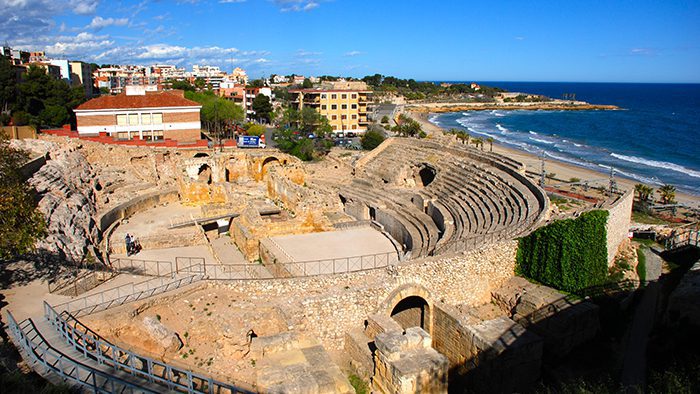
Tarragona is located along the Costa Dorada, or Golden Coast, about 60 miles southwest of Barcelona. This historical seaside town is home to the ruins of the Roman town of Tarraco, which has been named a UNESCO World Heritage Site. The city holds the largest and oldest Roman ruins in the Iberian Peninsula. To find this town, follow the E-90 south until E-15, and from there you will exit into Tarragona’s center.
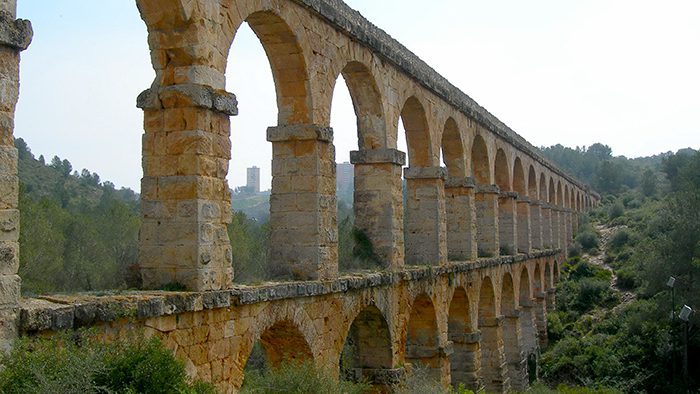
During the Roman Era, the town of Tarraco was the capital of the region that minted coins for use throughout the Roman Empire. The town was also a strategic winter base for the Roman army and several battles were fought in the town’s vicinity.
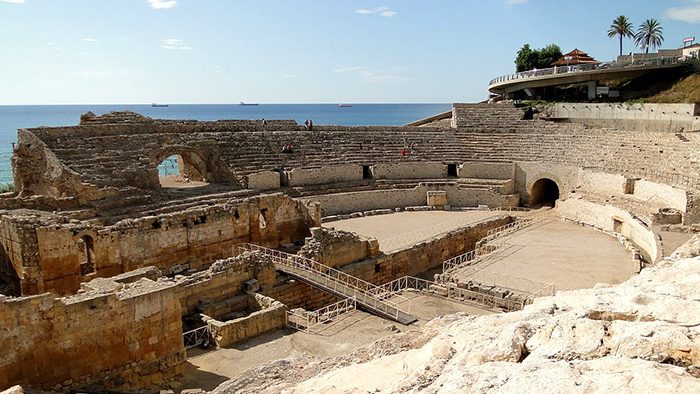
Tarragona is filled with places to visit on foot and each has a unique story. The sturdy Aqüeducte de les Ferreres once funneled water from the Francolí River to the town and can be found near the E-15. The amphitheater, which overlooks the ocean, is still partially intact and can be explored along its perimeter. Also worth visiting is the Arch of Sura, the citadel, the Tower of the Scipios and the palace of the Roman Emperor, Augustus.
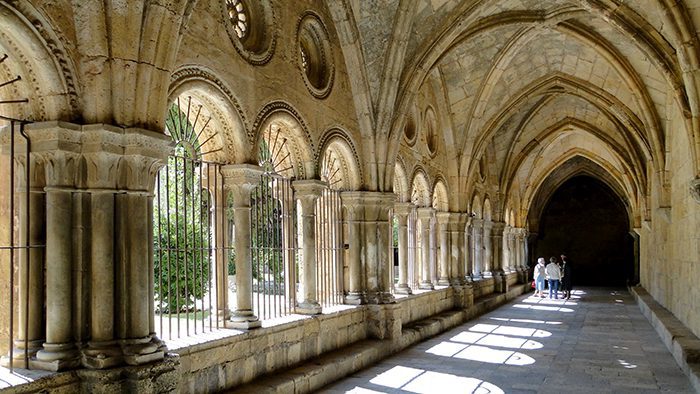
Stroll up and down the main street, Rambla Nova, to get a feel for the town. An excellent restaurant I ate at for lunch is Palau Del Baró, which features scrumptious Mediterranean cuisine at very reasonable prices. Order the Catalan specialty Fideua de Mariscos (think classic paella flavor but with thin noodles instead of rice). The restaurant’s address is Santa Anna, 3. Tarragona’s main attractions can be seen in about four to five hours. Be sure to wear comfortable shoes, as this is a walking town.
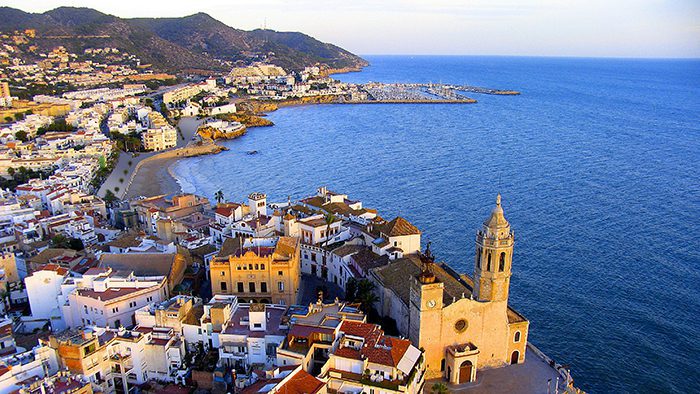
The town of Sitges is about twenty minutes southwest of Barcelona along the C-32 Highway, which also runs parallel to the coast. It is often referred to as the Monte Carlo of Spain because of its successful casino and dance club circuits. This charming whitewashed beachside town is known for its 17 sun-drenched beaches and for hosting the annual Sitges Film Festival, which primarily screens horror and fantasy films.

The town initially flourished because of its wine production but eventually turned to tourism to fuel its economy. In the Middle Ages, the archbishop of Barcelona ordered the construction of a castle, which was later given to Catalan nobleman Mir Geribert. The Sitges family ruled the town until the early 14th century, when it was sold to Bernat de Fonollar. Sitges is also known for being the birthplace of Facundo Bacardi, founder of Bacardi.
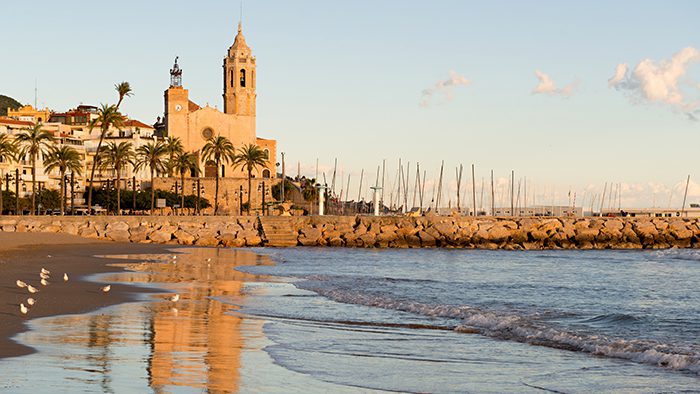
Not-to-miss attractions include the Palau Maricel, the Museu Romàntic and the Church of Sant Bartolomeu i Santa Tecla. The Museu Romàntic replicates the lifestyle of the Romantic Era and offers a unique glimpse into one of history’s most influential time periods. The Palau Maricel houses a collection of largely medieval artwork and was founded by American businessman Charles Deering.
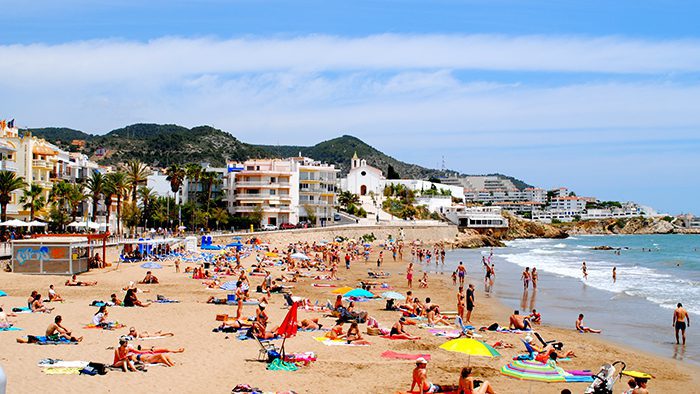
A popular local dish is xato, which consists of various fish meats, eggplants, olives and a sauce made of chilies, garlic, almonds and vinegar. The dish is often served with omelets, cake and blanc Penedès wine. A common local drink is Malvasia, a wine that tastes best with desserts.

The small town of Sant Sadurni d’Anoia is home to some of the best cava, Spanish sparkling wine (think Spanish version of champagne). The town is located off exit 27 on Highway E-90 west of Barcelona. cava houses, or bodegas, are as common as grocery stores, and each offers a new perspective on this ubiquitous Spanish drink.

Though the word cava was officially coined in 1970 to distinguish the drink from French champagne, the distinction is needless. It only takes one sip to realize that this is something entirely different. When light hits the wine, it literally sparkles.

The name cava comes from the caves that were originally used as cellars during their fermentation process. Although the process has changed over time, the quality of the end product has not. The wine is can either be white or rosé and dry or sweet. Visit Renfe to view train schedules from Barcelona’s Plaça de Catalunya station to Sant Sadurni d’Anoia.
Check out our article The Ultimate Cava Wine Tour in Spain
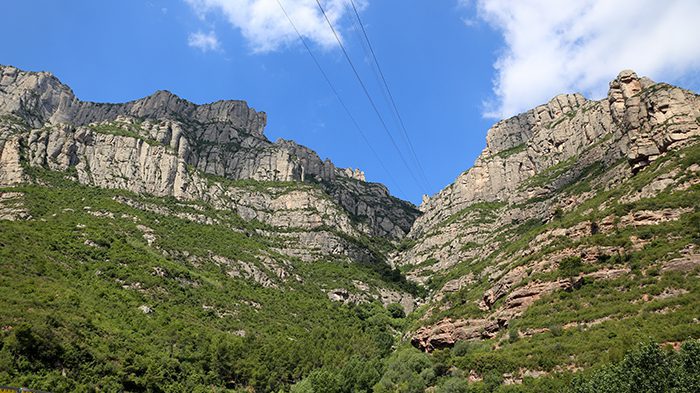
The gorgeous town of Montserrat is home to the Santa Maria de Montserrat Monastery, which houses the famous black Madonna icon. The city is three and a half hours southwest of Barcelona and can be reached by heading north on the A-2 and then taking the C-55. The easiest way to access the monastery is to ride the Funicular de Sant Joan. The ride offers a stunning panoramic view of the jagged mountains below.
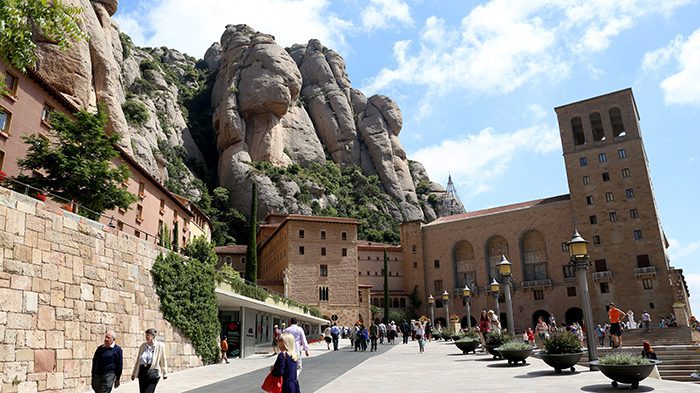
Once atop the mountain, visitors will be able to explore the monastery and the publishing house within it. The publishing house has printed books since the 15th century and is the oldest press in the world. But the main attraction here is the Virgin of Montserrat, a 12th century black statue of the Virgin Mary clutching baby Jesus.
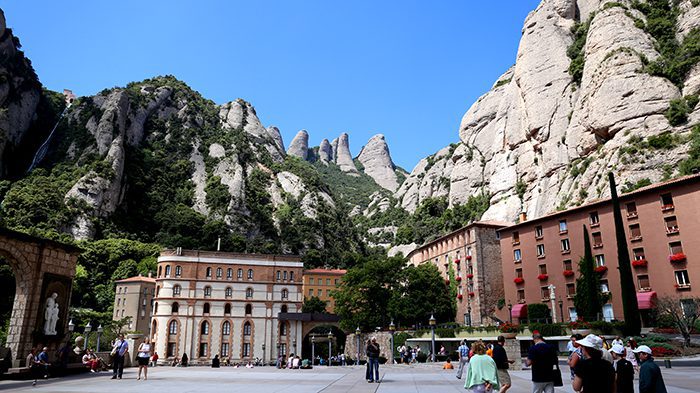
The Romanesque statue is located in the rear of the chapel on a golden altar. Local legends claim that the Benedictine monks were forced to build their monastery around the statue because none of them could physically move it. In 1844, the Virgin of Montserrat was deemed the patroness of Catalonia by Pope Leo XIII. For this, Monserrat is one of Catalunya’s most spiritually and culturally significant places.
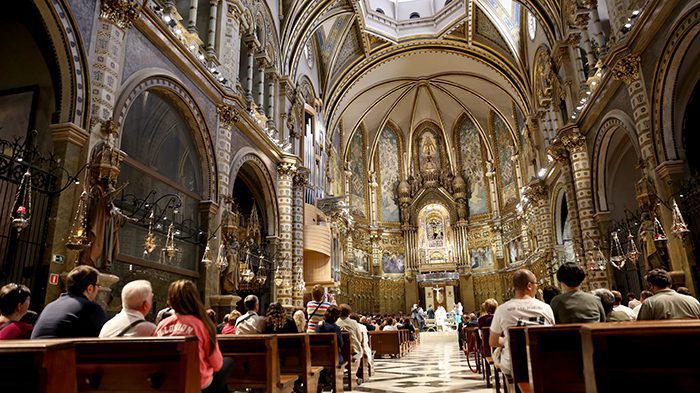
The Basilica of Montserrat is home to the talented L’Escolania Choir, a sopranos and altos choir for boys. They are sometimes joined by the Montserrat Chapel Choir, which consist of monks and older choir boys. The L’Escolania Choir is one of the oldest choir groups in Europe. They sing once a day during the midday Salve. The views at Monserrat are incredible and the funicular ride to the top was one of my favorite experiences in Spain.
Another highly recommended day trip from Barcelona is to the beachside town of Badalona. In this episode we visited the ruins of ancient Baetulo are housed within the Badalona Museum, located in the center of town at Plaça Assemblea de Catalunya, 1. The city dates back to the 1st century B.C., making it one of the oldest Roman settlements on the Iberian Peninsula!

Read more about our experience in Badalona here.
Have you ever visited any of these cities? If you have any other suggestions for day trips from Barcelona leave us a comment below!
Counter
101 Countries • 1432 Cities